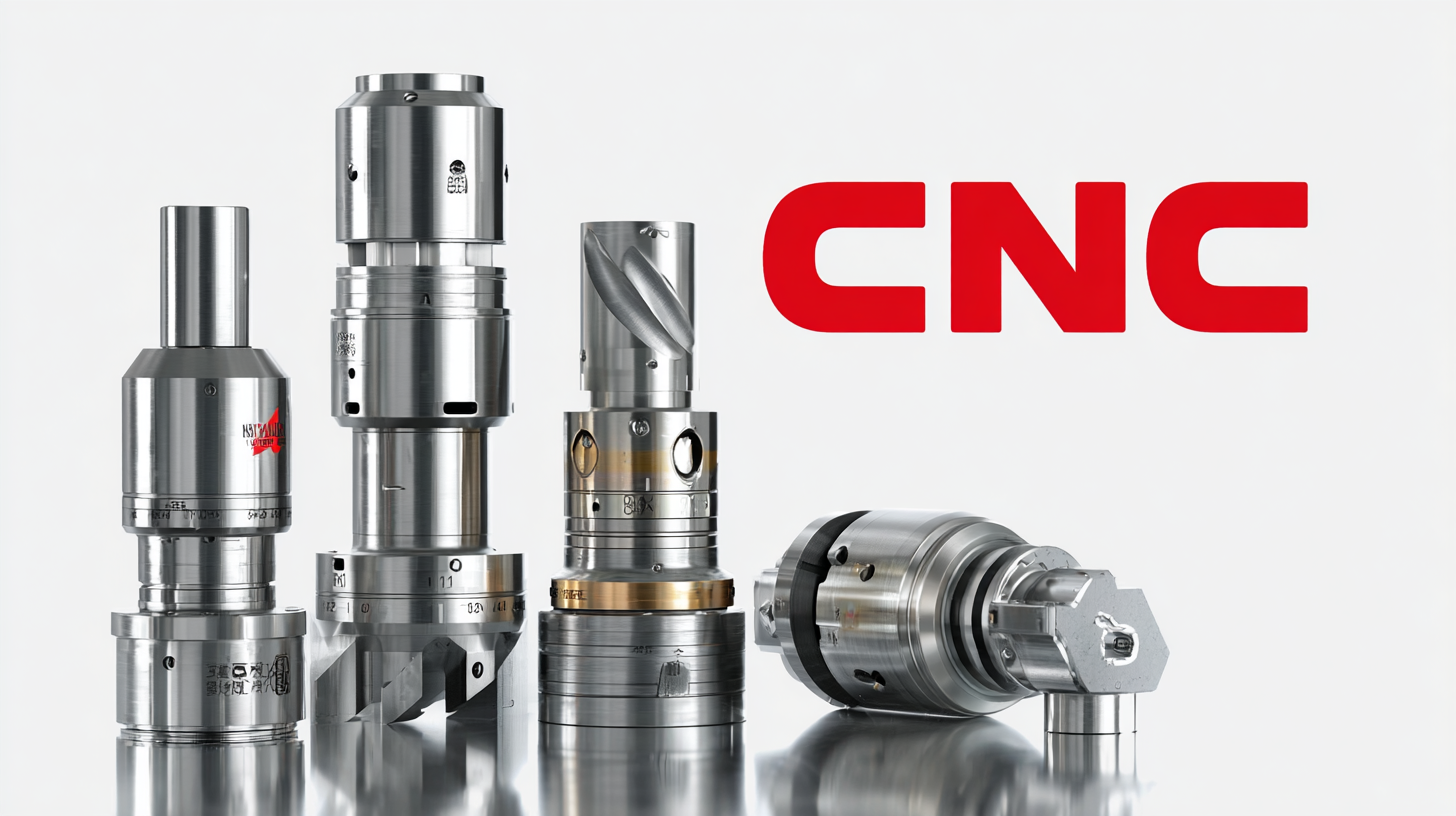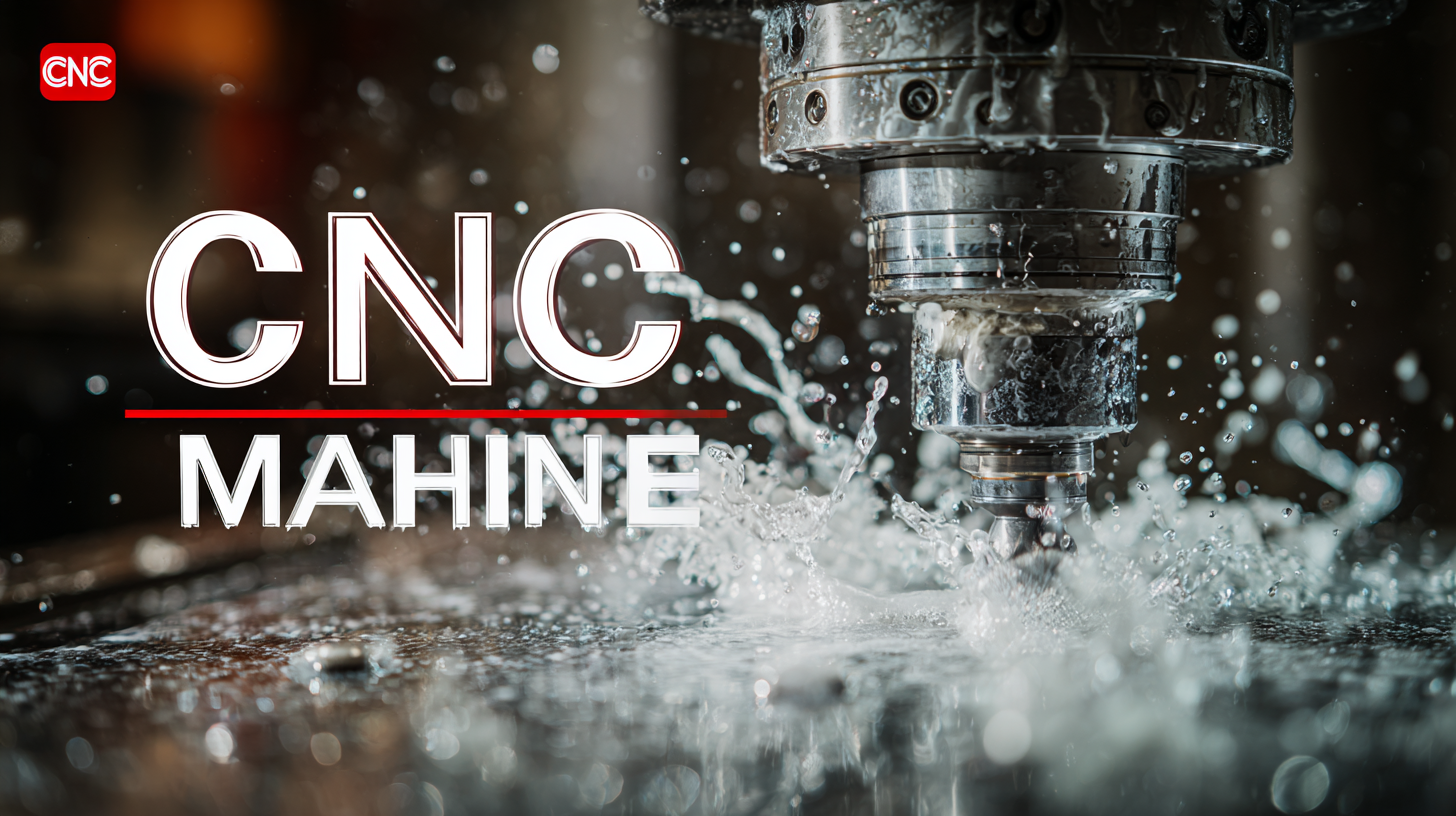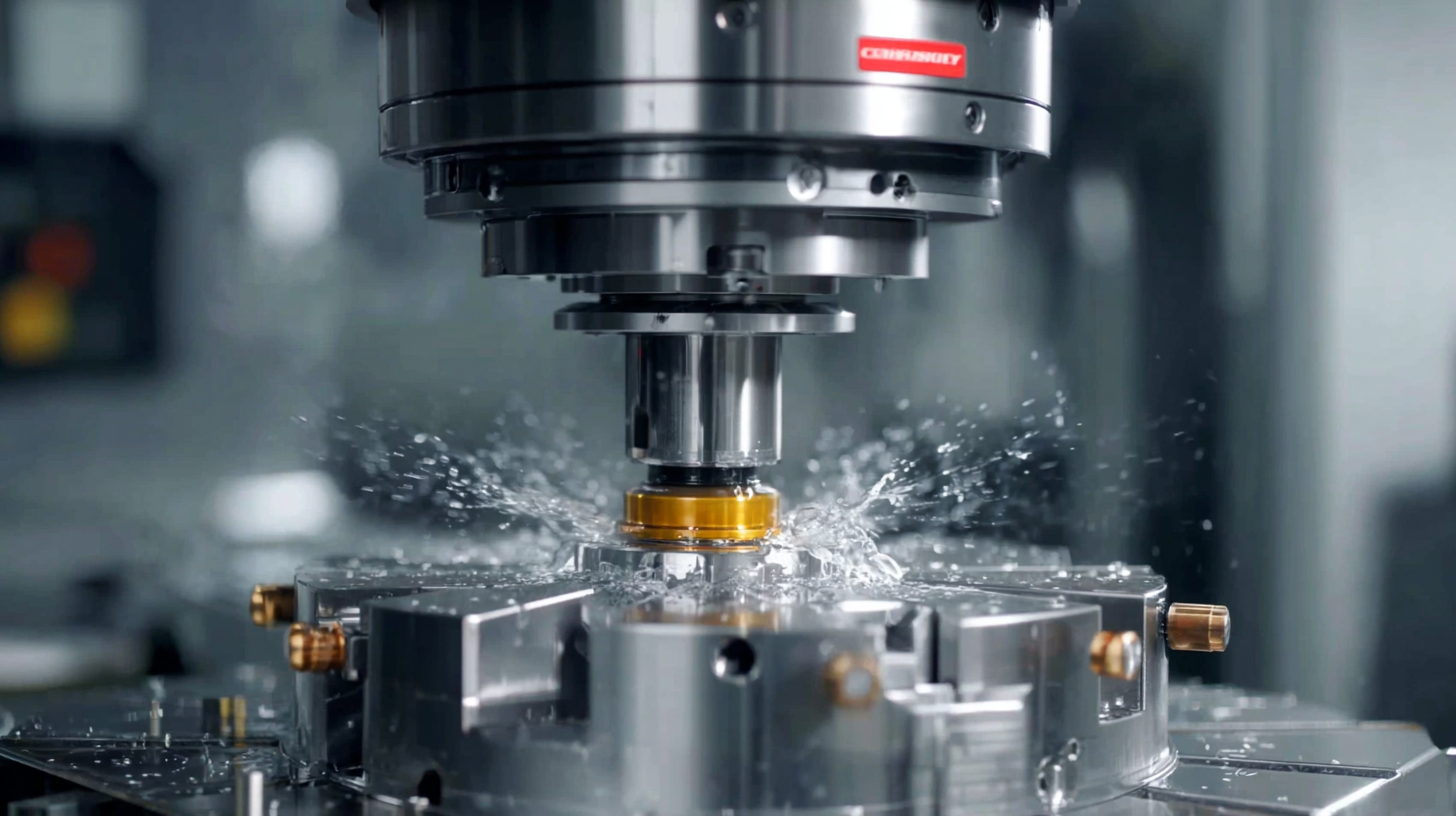Unlocking Efficiency Through Innovative Applications of Best CNC Machine Tools in Various Industries
In today's rapidly evolving manufacturing landscape, the integration of cutting-edge CNC machine tools has become paramount in unlocking unprecedented efficiencies across various industries. As global manufacturing plants strive to remain competitive, the focus on adopting innovative applications of these advanced tools has never been more critical. With their ability to enhance precision, reduce waste, and accelerate production timelines, CNC machine tools are leading the charge in transforming traditional processes into streamlined operations. This blog will explore how different sectors are leveraging the capabilities of CNC machine tools to not only meet but exceed international standards, thus solidifying their positions as frontrunners in the global market. By examining case studies and best practices, we will illustrate the pivotal role that these sophisticated technologies play in driving success and innovation in manufacturing.

Understanding the Importance of Selecting High-Quality CNC Machine Tool Manufacturers
Selecting high-quality CNC machine tool manufacturers is crucial for industries aiming to maximize productivity and efficiency. According to a report by MarketsandMarkets, the CNC machine tools market is expected to reach USD 117 billion by 2025, driven by the increasing need for automation in manufacturing processes. High-quality manufacturers ensure that their machines come equipped with the latest technology and features, which directly influences operational performance and end-product quality.
Moreover, the importance of durability and precision in CNC machine tools cannot be overstated. A study published in the Journal of Manufacturing Science and Engineering indicates that investing in superior machine tools can reduce production time by 30% and increase output quality by 20%. By partnering with reputable suppliers, companies not only enhance their manufacturing capabilities but also reduce downtime and maintenance costs, leading to a more streamlined production process. This strategic approach allows industries to maintain a competitive edge in an ever-evolving market landscape.
Key Factors to Consider When Evaluating CNC Machine Tool Providers
When evaluating CNC machine tool providers, several key factors can significantly impact operational efficiency and product quality across various industries. First, the precision and reliability of the CNC machines themselves must be considered. Industries such as aerospace, medical devices, electronics, and automotive heavily rely on highly accurate components, often manufactured through processes like CNC machining, electrical discharge machining, and laser cutting. Therefore, the capability of the machine to consistently produce these high-tolerance parts is paramount.
Another critical aspect is the provider's technological advancements. Cutting-edge features, such as advanced grinding functionalities or specialized capabilities for small batch production, can lead to enhanced productivity and cost savings. Additionally, the manufacturer's support services, including technical assistance and maintenance options, play a vital role in ensuring uninterrupted operations. An evaluation of these factors will lead to informed decisions when selecting a CNC machine tool provider, ultimately contributing to better performance and competitiveness in the market.
Efficiency of CNC Machine Tools Across Different Industries
Innovative Applications of CNC Technology Across Diverse Industries
The advent of Computer Numerical Control (CNC) technology has revolutionized manufacturing across multiple sectors, paving the way for innovative applications that enhance efficiency and precision. In the automotive industry, CNC machines are essential for machining complex parts with tight tolerances, allowing manufacturers to produce high-quality components at a faster pace. This precision reduces material waste and minimizes the need for manual interventions, leading to improved workflows and cost savings.

Beyond automotive, the aerospace sector has embraced CNC technology for its ability to create lightweight structures and intricate components that are critical for flight safety and performance. CNC machining enables the production of complex geometries that traditional manufacturing methods struggle to achieve. This capability not only enhances the functionality of aircraft but also contributes to fuel efficiency and overall performance.
Furthermore, the medical industry is witnessing transformative changes through CNC applications. Custom implants and surgical instruments can now be manufactured to meet specific patient needs with remarkable accuracy. This innovation streamlines production processes, ensures high standards of quality, and significantly improves patient outcomes. As CNC technology continues to evolve, its potential to drive efficiency across diverse industries remains limitless.
Solutions for Enhancing Productivity with Advanced CNC Machine Tools
In today's competitive landscape, enhancing productivity is crucial for businesses across various industries, and advanced CNC machine tools are at the forefront of this evolution. By leveraging the precision and speed of these tools, manufacturers can streamline processes, reduce waste, and ultimately increase output. Integrating CNC technology into production lines not only boosts efficiency but also ensures high-quality results that meet stringent industry standards.
To maximize the benefits of CNC machine tools, consider implementing a regular maintenance schedule. Keeping machinery in optimal condition prevents downtime and extends tool life, contributing to overall productivity. Additionally, investing in employee training on the latest CNC technologies can significantly enhance operational efficiency. Skilled operators can make better use of advanced features, leading to better workflow management and quicker turnaround times.
Another key tip is to utilize CNC software that offers data analytics capabilities. By analyzing production data, companies can identify bottlenecks and optimize workflows. This data-driven approach allows for timely adjustments that enhance efficiency and reduce production costs, making it an invaluable strategy for businesses looking to stay ahead in a fast-paced market.
Unlocking Efficiency Through Innovative Applications of Best CNC Machine Tools in Various Industries
| Industry | CNC Machine Tool Type | Application | Productivity Improvement (%) | Key Benefit |
|---|---|---|---|---|
| Aerospace | 5-Axis CNC Machining Center | Component manufacturing for aircraft | 30% | Increased precision and reduced material waste |
| Automotive | CNC Lathe | Engine parts machining | 25% | Faster turnaround and improved design flexibility |
| Medical Devices | CNC Milling Machine | Manufacturing surgical instruments | 20% | Enhanced quality control and precision |
| Electronics | CNC Router | Circuit board fabrication | 15% | Higher production rates and less manual labor |
| Construction | CNC Plasma Cutter | Steel frame cutting | 35% | Increased efficiency and reduced cutting errors |
Case Studies: Successful Implementations of CNC Tools in Manufacturing Processes
In recent years, various industries have witnessed transformative changes through the adoption of CNC (Computer Numerical Control) machine tools. One notable case study comes from the automotive sector, where a leading manufacturer implemented CNC lathes to streamline their production process. By utilizing advanced programming techniques, they significantly reduced machining time, enabling faster turnaround of components. The precision achieved not only enhanced product quality but also minimized waste, resulting in considerable cost savings.

Another compelling example can be found in the aerospace industry. A renowned aerospace company integrated CNC milling machines into their manufacturing workflow to produce complex parts with high accuracy. The use of multi-axis CNC tools allowed for intricate designs that were challenging to achieve with conventional machining. This innovation not only met stringent industry standards but also supported rapid prototyping, drastically cutting down the time from design to final product delivery. These successful implementations illustrate how CNC technology is driving efficiency and quality across various sectors, positioning businesses for enhanced competitiveness in a demanding market.
